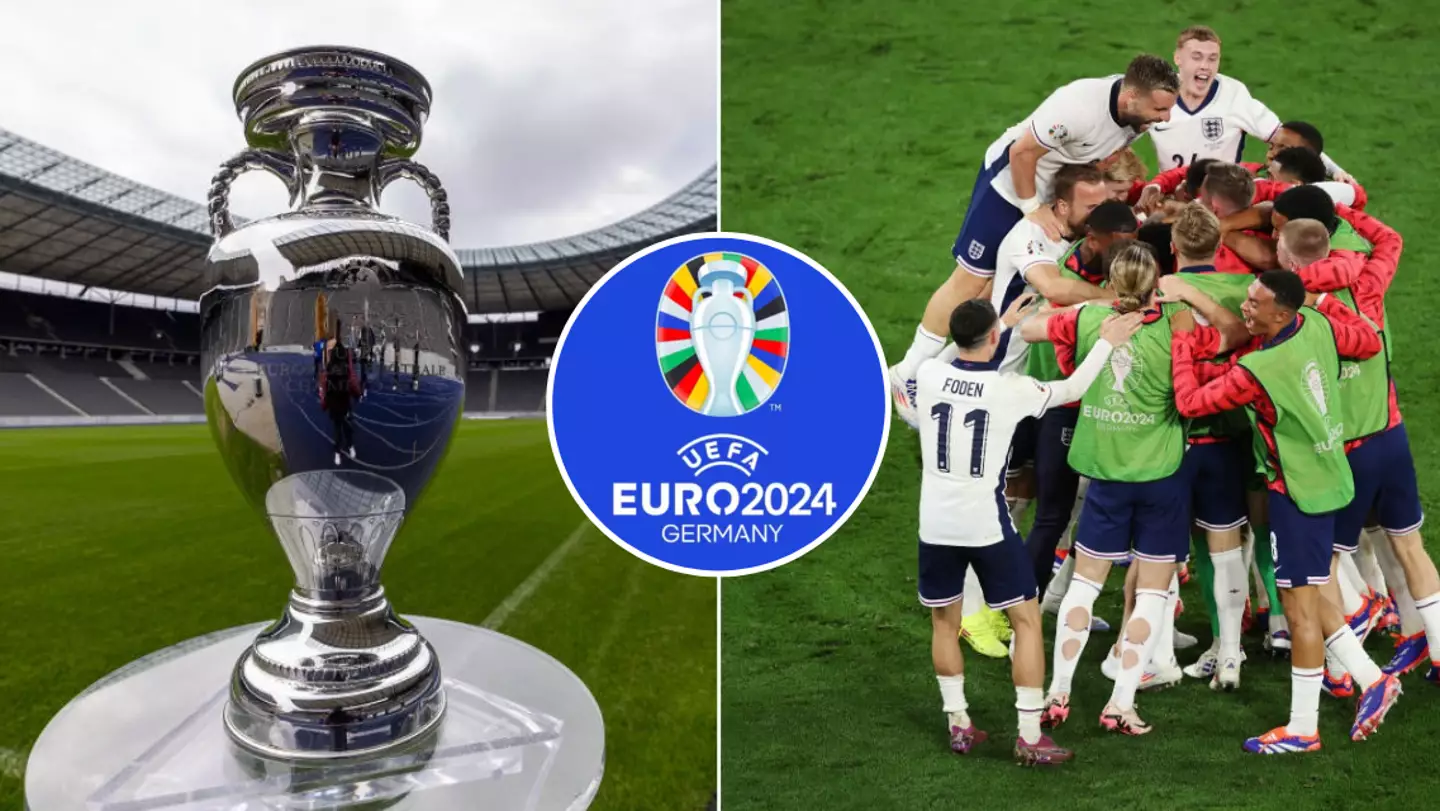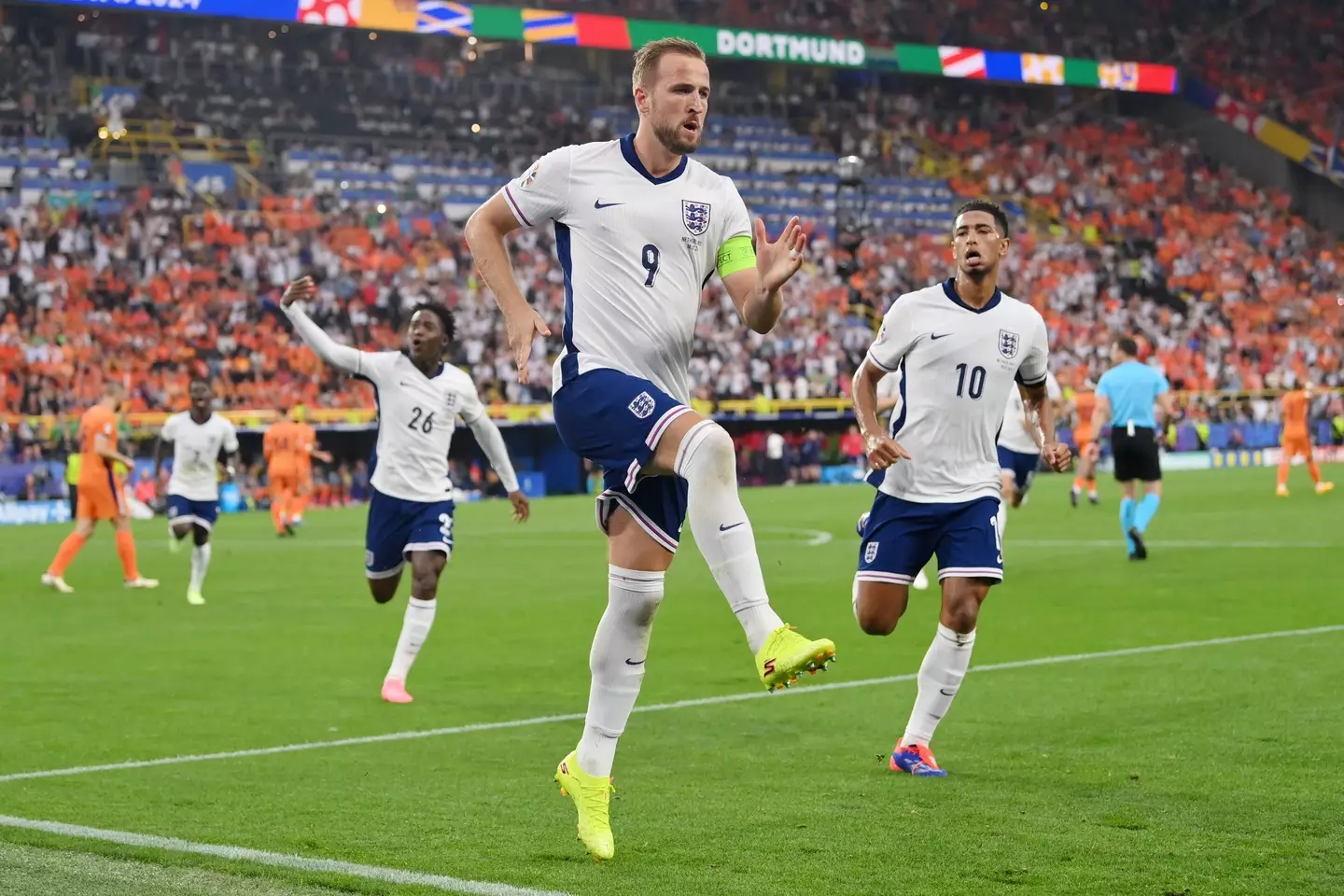
A decision has been made, just days before the Euro 2024 final.
UEFA have announced a late rule change ahead of Sunday’s Euro 2024 final between England and Spain – and it could play into the hands of Harry Kane.
The 30-year-old striker, who is England’s all-time top-scorer with 66 goals in 97 games, has netted three times at this summer’s European Championship.
After scoring his first in last month’s Group C clash against Denmark, Kane bagged a dramatic extra-time winner against Slovakia, just moments after Jude Bellingham equalised with a wonderful overhead kick.
He then equalised from the penalty spot in Wednesday’s 2-1 win over Netherlands as the Three Lions secured their place in Sunday’s showpiece event.
As a result, Kane is the joint top-scorer at Euro 2024 alongside Dani Olmo, Cody Gakpo, Jamal Musiala, Ivan Schranz and Georges Mikautadze.
So what happens if Kane and Olmo fail to score on Sunday? And what if Jude Bellingham or Fabian Ruiz score, or another player nets a brace?
Previously, UEFA would have awarded the Golden Boot to the player who notched the most assists, which is currently Spain midfielder Dani Olmo.
Cristiano Ronaldo, for example, picked up the award at Euro 2020 after registering one more assist than fellow joint top-scorer Patrick Schick, who also netted five times.
But ahead of Sunday’s final in Germany, UEFA have confirmed that the award will be shared between all players who finish level with the most goals.

Image credit: Getty
Kane has scored more knockout stage goals in major tournaments than any other European player.
His effort against the Netherlands on Wednesday saw him overtake Gerd Muller, Miroslav Klose, Kylian Mbappe and Antoine Griezmann, who all have eight goals.
Ahead of the game against Ronald Koeman’s side, Kane said: “I’d like to have scored more goals. But the tournament has been a low-scoring one for different reasons.
“The pitches are part of that reason. Teams are more organised and, from a manager’s point of view, they are more structured and they make it difficult for the favourites or better teams to exploit.
“You know that you’re never as bad as you think — and you’re never as good as you think on your good days.”
News
Discover the Hidden Health Benefits of Common Mallow: Nature’s Nutritional Gem (an)
Discover the Hidden Health Benefits of Common Mallow: Nature’s Nutritional Gem Common mallow, also known as Malva sylvestris, is often overlooked and dismissed as a mere weed. However,…
Boost Your Energy Like an 18-Year-Old with This Powerful Lemon and Honey Remedy (an)
Boost Your Energy Like an 18-Year-Old with This Powerful Lemon and Honey Remedy Introduction: Reclaim Your Youthful Energy Do you often find yourself wishing you could feel…
13 Health Benefits of Phyllanthus Niruri (Stonebreaker) (an)
Phyllanthus niruri, commonly known as Stonebreaker, Chanca Piedra, is a powerful medicinal herb widely used in traditional medicine. This plant is well-known for its liver-protective properties and its…
Yarrow: A Timeless Herbal Ally with Amazing Health Benefits (an)
Yarrow (Achillea millefolium), a perennial herb, has been revered for centuries as a medicinal plant with a wide array of health benefits. Its use dates back to…
Just 1 Leaf of This Plant Is Worth a Gold Mine – Euphorbia Hirta (Did You Know That?) (an)
Euphorbia hirta, commonly known as asthma weed or snake weed, may appear as an ordinary wild plant, but it is a true gold mine when it comes to its…
End of content
No more pages to load











